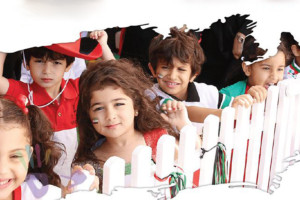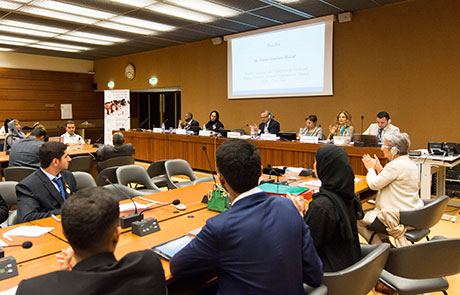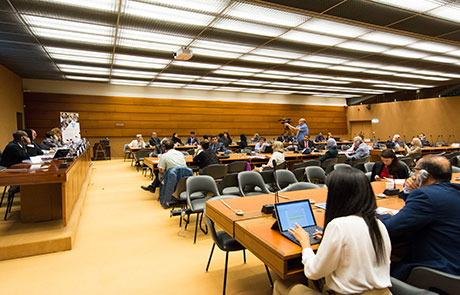A panel debate on the enhancement of access to justice for children in the United Arab Emirates and the implementation of the Convention on the Rights of the Child (CRC) was held on the margins of the 42nd regular session of the Human Rights Council.
The purpose of the panel was to raise awareness about the need to protect the rights of children in vulnerable situations, in particular, to seek redress for injustices, to gain a deeper understanding of the root causes and risk factors of child abuse and neglect, and to identify best practices in this domain.
In this connection, the panel took stock of the progress achieved in the UAE to enhance the legal empowerment of children, and identify areas of improvement in line with the provisions set forth in the CRC and other relevant international legal frameworks. It included the participation of Safety Ambassadors, created under the precept of the Wadeema Law.
The Executive Director a.i. of the Geneva Centre Dr Umesh Palwankar served as the panel moderator. The panel was opened by introductory remarks made by HE Obaid Salam Al Zaabi, Ambassador and Permanent Representative of the UAE to the UN in Geneva.
Panellists:
- Professor Velina Todorova – Vice-Chairperson and Member of the Committee on the Rights of the Child;
- Ms Fatma Ghulam Murad Albloshi – Head of Section of the Department of Child and Woman Protection. General Department of Human Rights, Dubai Police;
- Ms Beate Andrees – Chief, Fundamental Principals and Rights at Work Branch, ILO;
- Mr Phenny Kakama – Child Protection Specialist, UNICEF Regional Office for Europe and Central Asia.
Event Summary:
Professor Velina Todorova stressed the need for actions to be taken for prevention, protection and support to child victims. She referred to target 3 of SDG 16: “Promote the rule of law at the national and international levels and ensure equal access to justice for all” as the standard-bearer with regard to enhancing access to justice for children.
Ms Murad Albloshi presented the endeavours made by the Dubai Police and the UAE to promote access to justice for children, in particular through the adoption of Wadeema Law, and to spread the culture of child rights, enhance child security, monitor and report violations of their rights and seek redress through appropriate mechanism and institutions. In this regard, she explained the innovative role of the Safety Ambassadors who are in fact schoolchildren themselves.
Ms Andrees commended the endeavours made by the UAE to end the worst forms of child labour and for having been one of the first countries to have ratified the Child Labour Convention 182 of 1998. She echoed the recommendations made by ILO to the Government of UAE to continue to provide any information relating to the nature, extent and trends of the worst forms of child labour, and in particular statistical data on the number of children covered by the measures giving effect to the Convention.
Mr Kakama highlighted amongst others that access to justice means more than just the procedural process and that access to justice is the gateway to other rights. He stressed that it is of utmost importance to strengthen accountability mechanisms, enhance transparency and collaboration across sectors that will ensure the full realisation of all the rights of children.
In the panel discussion that followed, the Safety Ambassadors presented their activities and objectives and the positive results obtained in terms of addressing violations of child rights and in providing remedies to address such injustices.
Event Partner: Permanent Mission of the United Arab Emirates to the United Nations Office in Geneva.
Video Report: Enhancing access to justice for children in the UAE



